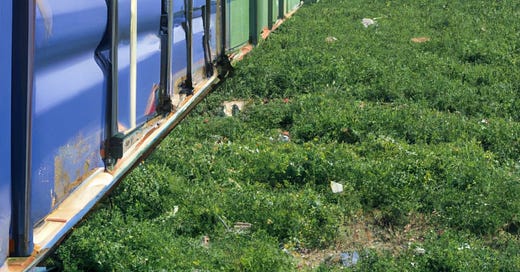A Decarbonization Case Study: Cargill
Charting a Greener Course: Cargill's Maritime Vision for a Carbon-Neutral Tomorrow and the Pioneering Steps to Revolutionize Global Shipping
In an era where companies grapple with the environmental impact of their operations, Cargill, the US-based agricultural trader, emerges as a trailblazer in the maritime decarbonization space. With global shipping on the cusp of a transformative shift to low-emission futures, Cargill has risen to the occasion by significantly bolstering its bio-bunkering program, not only for its own expansive fleet but also for other forward-thinking shipowners.
Such monumental strides weren't born overnight. Major trading titans like Cargill and Trafigura have been tirelessly working to carve out sustainable pathways. The impetus? To robustly cut down on the greenhouse gas emissions suffusing their supply chains. This green endeavor entailed exploring alternative fuels, a venture in which Cargill has particularly flourished.
In a candid conversation with S&P Global Commodity Insights, Jan Dieleman, the man at the helm of Cargill Ocean Transportation, proudly declared, "We are already doing a significant amount of biofuels." The numbers back him up. Over the past two years, Cargill has supplied a staggering 30,000-35,000 mt of marine biofuels across a gamut of shipping segments. And with Dieleman's optimistic projection of reaching, if not surpassing, 50,000 mt this calendar year, the future indeed looks greener.
Yet, Cargill's ambitions don't end at biofuels. Dieleman revealed that Cargill's partnership venture with Maersk Tankers, known as Pure Marine Fuels, shoulders the pivotal task of sourcing these biofuels. These supplies primarily emanate from Cargill’s state-of-the-art plant in Ghent, boasting an impressive production capacity of 400,000 mt/year of fatty acid methyl esters.
Peering into the horizon, Pure Marine aspires to usher in supplies of other eco-friendly marine fuels, notably methanol, albeit in limited availability currently. Signifying this vision, Cargill has chartered four cutting-edge methanol-capable Kamsarmaxes, due to grace the seas by 2025-26. These vessels are destined to be some of the first bulk carriers globally to be powered by this alternative fuel.
However, with the charter project's inception, the company embarked on this without a guaranteed supply. "Give the demand signal and stop [just] talking about ambition," asserted Dieleman, emphasizing the firm's proactive approach.
On the fuel spectrum, Dieleman also acknowledges the potential of ammonia, even though its propulsion technology might still be in its infancy. S&P Global Commodity Insight's forecast paints a future where methanol constitutes 0.8% of global bunker consumption by 2030, trailed by ammonia at 0.3%, and led by LNG at a notable 7.8%.
Addressing the elephant in the room, Dieleman alludes to the pricing differential of sustainable fuels versus conventional ones. For true maritime decarbonization to unfurl, the industry requires entities willing to shoulder the extra cost for green freight services. On the regulatory side, the EU is gearing up to extend its Emissions Trading System to encompass shipping from 2024. Cargill, with over a decade of experience in trading EU emissions allowances, envisions leveraging this proficiency to assist its freight customers in navigating these turbulent regulatory waters.
As the International Maritime Organization plans to unveil new emissions targets and regulatory frameworks in the imminent future, Dieleman muses that a $100/mtCO2 levy could be the catalyst propelling accelerated decarbonization. His parting words resonate with a hope that global regulations can bridge the existing gaps and make green premiums more attainable.
In essence, Cargill's maritime journey underscores a corporate commitment to the environment, signaling that the winds of change are not just coming—they're already here.





